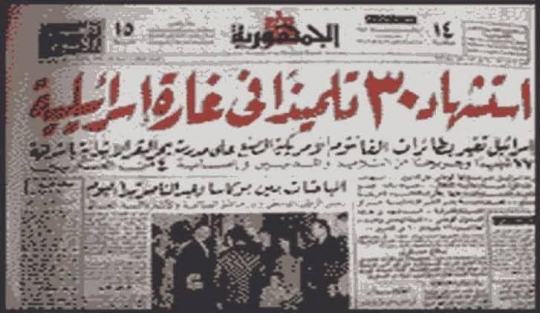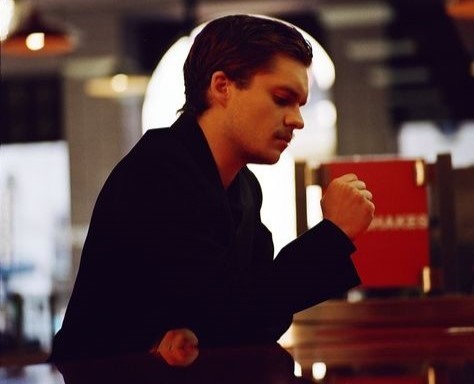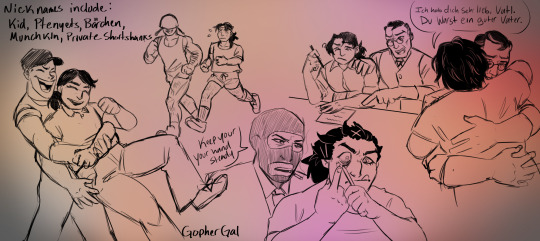#1968 primaries
Explore tagged Tumblr posts
Text
imagine twitter being a thing during the entirety of the nixon administration
48 notes
·
View notes
Text
Since I'm getting alot of replies, comments & questions in my inbox stating that "Israel has to bomb them as self defense" or "Israel bombs the hospitals & schools to get to Hamas" or the funniest one yet "they're war casualties".
I'd like to present to you an Israeli old war crime that doesn't have to do with Palestine, the "Bahr El-Baqar primary school bombing"

Where did that happen?
Egypt.
When did that happen?
8th of April 1970.

Who caused the death of 30 children & injured 50 including teachers?
Israel.
So of course you're asking why did Israel say they bombed a children's primary school?

Does it remind you of something?

Also remember how the US helps Israel with ammunition, money and more?
Guess the type of warplanes Israel used to bomb the school in 1970, yes you're right they were American.

"With American Phantom warplanes, the enemy hit an Egyptian children's school"
Also here's a link about the US-Israeli alliance regarding the warplanes:
In conclusion, don't be surprised by what's happening in Palestine & Gaza, it's not the first time Israel attacks civilians for no reason then come out with the "they have a military base/Hamas underground", also don't be surprised by the US backing them up, it's not the first time & it won't be the last so let me remind you:
This is where the American taxes go.
#palestine#israel#israel is a terrorist state#gaza#free palestine#genocide#ethnic cleansing#israel is an apartheid state#this is where the american taxes go#egypt#israel vs egypt
1K notes
·
View notes
Text

Who doesn't love a perfectly preserved time capsule? This 1968 beauty in Rockford, IL is like stepping back in time. 4bds, 4ba, $450K.

The small entrance has tiled flooring to protect the carpet that runs all through the house.

Why is it always green? This was a dramatic home when it was new- stone fireplace, sunken living room, and wrought iron railings were the height of fashion.


The living area is huge. Note the large stone bench matching the fireplace and the cornice boards that discreetly hide the unsightly curtain rods.

The fireplace stone continues and has a huge mirror. In the corner is shelving and 2 steps up to the dining room.

The dining room has dated curtains that the buyer will inherit. I love the kitty-corner table. That was a common placement in mid-century style.

Next comes the kitchen. Actually, they must've updated it b/c I don't think that 2-tone cabinets were a thing yet. But, the ditzy, small, busy print of the wallpaper with matching shades was definitely the style. Note the original avocado dishwasher and dust shelving above the upper cabinetry, that was later replaced by soffits.


Wait a minute, I'm seeing props here- there's a new dishwasher and new ovens, but they kept the old avocado ones. I wonder if they work or, if it's just nostalgia. There are also 2 cooktops. Wow, they really preserved everything.

Look at the green glass.

Large laundry room off the kitchen.

Oh, look, an avocado washer/dryer set. This is amazing. And, look at the old sink. I hope someone who loves it, buys it, b/c it was so lovingly cared for.

Nice large everyday dining area has a pony wall separating the family room. So much green everywhere. I wonder if this set came that way or if they painted it.

Another stone fireplace flanked by shelving. Knotty pine walls, and folding shutter doors- all fashions of the past. I can't believe that they have the Colonial furniture that was so popular at the time. Even though it was all the rage, you don't see it around anymore. According to the listing, there is going to be an estate sale, so this furniture will be available.

The primary bedroom is pretty big. Geez, there's carpeting everywhere and some of it is looking gnarly.

It has an en-suite, which is unusual. Look at that fancy cabinet. Green laminate counter, too.

This bedroom is also pretty big. Look at the consummate girl's white bedroom furniture of the mid-century.

The den has a big old map probably with countries that don' t even exist anymore.

More bedrooms on the 2nd fl.

Oh, look at that! A hope chest! They were popular for a teenage girl to receive as a gift. Then, she would put in blankets, etc., in the hopes of one day getting married and using them. I can't get over the historic furniture in this place.

And, then they've got a big family room up here. Wow, this house has so much furniture and tchotchkes.

Winter? No problem. Just set the lawn furniture up in the basement.

There's also a finished part of the basement. This is a craft room, and there is also a canning room.

Look at the antique freezer on the right. This place is a museum.

This part of the basement isn't finished even though it has a brick fireplace. No matter, they still used it as a family room, anyway.

According to the listing, this is a 2 car garage, called a "cottage garage," b/c I guess it looks like a residence.

This cool log cabin on the property is used as a playhouse, according to the listing.

Yeah, but look at it, it's really a residence.

There's a lot of land, 3.50 acres.
https://www.zillow.com/homedetails/6151-Newburg-Rd-Rockford-IL-61108/5537324_zpid/
251 notes
·
View notes
Text
1968 [Chapter 1: Ares, God Of War]

Series Summary: Aemond is embroiled in a fierce battle to secure the Democratic Party nomination and defeat his archnemesis, Richard Nixon, in the presidential election. You are his wife of two years and wholeheartedly indoctrinated into the Targaryen political dynasty. But you have an archnemesis of your own: Aemond’s chronically delinquent brother Aegon.
Series Warnings: Language, sexual content (18+ readers only), violence, bodily injury, character deaths, New Jersey, age-gap relationships, drinking, smoking, drugs, pregnancy and childbirth, kids with weird Greek names, historical topics including war and discrimination, math.
Word Count: 5.7k
Let me know if you'd like to be added to the taglist! 🥰💜
💜 All of my writing can be found HERE! 💜
Let’s begin with a definition.
Disaster is a noun derived from Ancient Greek: dus, a prefix meaning “bad,” and aster, or “star.” In the time when humans worshipped Zeus and Hera, Hephaestus and Aphrodite, it was believed that tragedies resulted from the inauspicious positioning of celestial bodies: a volcano erupts because of Jupiter, a returning comet brings with it a flood. There is a certain helplessness inherent in this mythology. There is predestined suffering that lies in wait until all the jewels of the sky have malignantly aligned.
Have you ever met someone who made you ache to change the stars?
~~~~~~~~~~
Gunshots explode through the lobby of the Breakers Hotel in Palm Beach, Florida; you feel the wind of the bullets as they clip by, fragmented metallic rage. Aemond is on the marble floor, blood pouring down his face, blood all over the white shirt beneath his navy blue suit jacket when you rip it open, tearing a button loose. He’s reaching for you through the jostling and the screams, leaving crimson handprints on your mint green dress. And you think: He just won the Florida primary. He’s not supposed to die. He’s supposed to be the president.
“What happened?” Aemond murmurs, his right eye dazed and only half-open; the left has vanished beneath a cloudburst of gore. Perhaps ten yards away, people have caught the assailant and pinned him against one of the vast Venetian windows until the police arrive. They’re roaring at him in red-faced fury, their closed fists strike his ribs and his cheekbones, their knuckles paint him scarlet and indigo.
“You’re alright, you’re alright.” You brace both palms over the maroon stain spreading rapidly across Aemond’s chest and press down as hard as you can. Your fingers are drenched in seconds, warm fading life. He’s bleeding to death. You shriek through the turmoil: “Criston?!”
“Is he okay?” Aemond asks faintly. He means the baby; you’re six months pregnant with his first child, his greatest treasure, his Atlantis, his Holy Grail. Aemond has already decided that it’s a boy. Sometimes you fear what will happen if he’s wrong.
“Yes, honey, the baby’s fine, don’t worry. Criston!”
Aegon is here instead, sweating out rum and ruin like he always is, hair too long, veins full of pills, colliding with you and pawing at his dying brother with untrustworthy hands. “Aemond?!”
You shove Aegon away, splattering him with blood. “Get back, he needs air!”
“Where’s he shot?! Let me see—”
“I told you to get back!”
“Goddammit, you don’t own him! He’s mine too!”
Criston has battled his way to you and is yanking Aegon back by the collar of his frayed olive green army jacket, stolen from Daeron when he visited home after basic training, a uniform of embittered revolution worn by a man who’s never fought for anything. “Aegon, make sure someone’s called for an ambulance, then meet the paramedics at the door and help them find us.”
“But—”
“Go!” Criston yells, and Aegon scrambles to his feet and is lost within the crowd. You can hear Otto bellowing at journalists and hotel employees to make space for the fallen senator; there are flashes of cameras and prayers shouted aloud. Above your head are crystal chandeliers and a vaulted ceiling hand-painted by 75 Italian artists in the 1920s; swimming in your skull are visions of Jackie Kennedy in the pink suit filthy with her husband’s brains. It’s just before midnight on Tuesday, May 28th. Upstairs in their oceanfront Imperial Suites, nannies will be shaking awake the absent adults of the Targaryen dynasty, who retired with the children before Aemond made his victory speech in the hotel ballroom: Alicent, Helaena, Fosco, Mimi.
Criston’s hands—larger, stronger—replace yours over the gushing wound in Aemond’s chest. What did the bullet hit? His lung, his heart? He’s not speaking anymore, his right eye is closed. His bloodied hands rest open and empty on the floor. “Criston, he’s dying,” you sob.
“No he’s not. We’re not going to let him.”
“What’s the closest hospital?”
“Good Samaritan is just across the bridge on the mainland.” It’s Criston’s job to know these things, though he had been thinking of you when he plotted his meticulous notes in his day planner: in case you eat a bad cheeseburger, or trip on the stairs, or catch the flu and start burning up with fever. Aemond worries about the baby. Aegon has five children, Helaena has three, and Aemond will feel that he has been robbed of something if he does not swiftly procure a family of his own. He needs you on the campaign trail, but still, he worries.
Across the lobby, the police have arrived to arrest the aspiring assassin. He puts up a fight when they try to handcuff him and earns a nightstick to the gut, an elbow to the nose. He is choking on his own blood. Perhaps he is drowning in it. Good, you think.
“Don’t kill him!” Otto booms at the officers. “I want him alive for trial! I want him to ride the lighting up in Raiford, you keep that son of a bitch alive!”
“Aemond?” You thread your fingers through his blood-soaked hair. What happened to his left eye? Is it somewhere underneath all that carnage, or is it gone? “Please wake up. Please stay with me. We need you. The baby and I need you.”
“He’s going to live,” Criston promises, both hands still clamped over the bullet wound to slow the hemorrhaging.
“Aemond, please…” How can he be the president with only one eye?
An old woman in a yellow striped skirt suit is lumbering close with a homemade prayer rope clenched in her fist. “A komboskini for the senator!” For his last rites. For his soul.
“He doesn’t need it!” Criston says. “He’s not dying! No one is dying tonight!”
Still, you take the komboskini from the lady, each of the 100 knots a prayer unspoken. She is a devotee of Aemond, and you must show her gratitude. “Efcharistó, aderfí. O Theós na se evlogeí.” They are some of the few Greek words you’ve mastered; you’ve used them often since Aemond announced that he was running for president. Thank you, sister. God bless you.
The paramedics arrive, splitting the crowd like a laceration, white uniforms and a stretcher to ferry Aemond away. People are wailing, cursing, swearing vengeance. Aegon has returned and is peering down at Aemond with those large, glassy, muddled eyes, afraid to ask. “Is he…is he still…?”
“He has a pulse,” Criston replies. He helps the paramedics drag Aemond onto the stretcher and strap him to it. Your husband’s shirt is now drenched in red like garnet, like cinnabar, like the poppies that commemorate the boys butchered in World War I, like the wasted blood being spilled in Vietnam, men reduced to memory. “Good Samaritan?” Criston confirms with the paramedics.
“Yes sir,” the most senior one agrees. And then to you, with great deference, with compassion that transcends what somebody can harbor for strangers: “Ma’am, there’s a place for you if you want it.”
“I do,” you say, tear-streaked face, hands bathed in blood. “Thank you. Thank you so much.”
The ambulance is idling outside the main entranceway of the hotel. Criston grasps your hand to steady you as you step up into the back, and you take a seat on the red leather bench beside the stretcher. The paramedics are placing IVs, holding an oxygen mask to Aemond’s face, muttering urgently into their radio, abbreviations and code words you can’t understand, a secret language of organic calamities. High above the stars are crystalline and radiant in a clear sky. In your own chest—unshredded by metal, unpierced by rage—your intact heart is pounding.
The lead paramedic turns to you again and says: “We can fit one more person.”
It’s your decision. You are the senator’s wife; you were supposed to be the next first lady of the United States. You look through the ambulance’s open doors. Aegon stares back expectantly, his hair falling in his face, his arms thrown wide, petulant, combative, useless, drunk. “Criston.”
“Bitch!” Aegon hisses at you as Criston climbs into the vehicle. The doors slam shut, the engine rumbles, the siren squeals as the ambulance races westbound on Breakers Row towards County Road, which connects with Flagler Memorial Bridge and the mainland.
Through the rear window you watch Aegon as he stands in the white-gold hotel luminescence, becoming smaller and smaller until he vanishes, and all you can see are streetlights, and all you can smell is blood.
~~~~~~~~~~
Every story needs its cast of characters. Here are the major players in the summer of 1968.
President Lyndon Baines Johnson is in the White House watching the clocks tick towards November 5th, when his successor will be ordained. He has chosen not to seek reelection. Since his ascension upon Kennedy’s assassination in 1963, Johnson’s domestic focus has been unprecedented civil rights legislation and his War On Poverty, yet what has infected the media like blood poisoning is the war in Vietnam. On the television are napalm bombs incinerating Vietnamese peasants, caskets draped with American flags, riots being beaten down by police, college students torching draft cards and chanting “Hey, hey, LBJ, how many kids did you kill today?” Now the president is sick in body, in spirit, in heart, and this is not a metaphor: he suffered a near-fatal cardiac arrest in 1955 and another shortly after John F. Kennedy was murdered in Dallas, Texas. He will die almost exactly four years after leaving office. Had he sought another term, he would have been unlikely to survive it. The public eye is something like a snake bite; it sinks its fangs in and you hope the venom burns clean before it can curse you with clots or hemorrhages or paralysis, before it can drown you in the dark waters of infamy.
In the void left by President Johnson’s surrender, four factions have emerged within the Democratic Party. The old guard—the same labor unions, congressmen, and local political machines who have steered the platform since the days of Franklin D. Roosvelt’s New Deal—has flocked to current Vice President Hubert Humphrey. Humphrey is competent yet uninspiring, a mid-fifties Midwesterner who flinches at the unpolished fury of antiwar protests and sedately lectures Black Power activists on the dangers of “reverse racism.” He is not a threat. He is a sheep in sheep’s clothing, and this is the time for wolves.
Senator Eugene McCarthy of Minnesota is unapologetically opposed to the Vietnam War, a moral crusader, a reluctant warrior, a man who wears his lack of taste for the presidency like a badge of honor. He feels compelled to run, but he does not crave it. He thinks this makes him a saint; but Joan of Arc was burned at the stake and Saint Lawrence was roasted alive. Like Halloween candy plunked into a child’s neon orange plastic pumpkin, McCarthy has collected his own coalition, college students and posh urbanites who believe themselves to be the future of the Democratic Party. In 2016, people will conjure McCarthy’s ghost when drawing comparisons to a controversial left-wing senator from Vermont named Bernie Sanders.
If McCarthy is the future and Humphrey is the past, then former governor of Alabama George Wallace is downright archaic. He is the candidate of choice for Southern white supremacists, averse to Republicans since Lincoln and still reverent of Depression-era New Deal programs that kept them from starving to death. Wallace is best known for his promise of “segregation now, segregation tomorrow, segregation forever,” and pledges to end the chaos that has besieged America through strict law and order. Provided he loses the Democratic primary, Wallace plans to run in the general election as an Independent, hoping to peel away enough support from the major party candidates to force the House of Representatives to declare the winner and then leverage his votes to negotiate an end to federal desegregation efforts in the South. His devoted wife Lurleen just died of uterine cancer, a diagnosis which Wallace kept hidden from her for years; doctors are in the habit of informing husbands of their wives’ ailments and giving them carte blanche control over the treatment plan, which unfortunately in Lurleen’s case was nothing. She was 41 years old.
In his short-lived castle of red corridors like the marrow rivers of bones, President Johnson hides from the hippies who jeer and spit; Humphrey frowns at them, McCarthy tries to appease them, Wallace says the only four-letter words they don’t know are “w-o-r-k” and “s-o-a-p.” But Aemond climbs down from podiums to meet them like old friends. He is young, only 36. He has a brother serving in the swamps of Vietnam. He is focused, determined, insatiable; he devours every scrap of news that is printed about him and writes his speeches by hand. As the self-admitted runt of the Targaryen family, Aemond knows what it is like to be underestimated. He wants a better America, and he wants to be the president, and he wants these things in equal, relentless measure, each fueling the other until these ambitions become inseparable. He has grown up hearing slurs against Greeks and consequently has no tolerance for discrimination, which he contends is antithetical to the American Dream. He attends civil rights marches in labyrinthian cities, antiwar protests on college campuses, union meetings in coal mining towns of West Virginia and Kentucky and Wyoming, music festivals crowded with long unwashed hair and braless women, fundraisers flush with the deep pockets of the Northeastern elite. Aemond’s coalition grows each day, bleeding away strength from his rivals like a Medieval surgeon. Their flesh turns cold and anemic, while Aemond’s heart pumps scalding torrents of blood.
If Aemond wins the Democratic primary at the convention in August, his opponent will almost certainly be the Republican frontrunner Richard Nixon of California. Nixon wants the White House just as badly, and he’s much smarter than he looks. He was Eisenhower’s vice president for eight years in the 1950s and lost to the ill-fated John F. Kennedy in 1960 by a whisker; some say he did not lose at all, but instead was cheated out of 100,000 votes by Kennedy’s mafia connections in Chicago. But with the Democrats divided and their incumbent president floundering, Nixon’s timing has never been better. He was once a poor boy with two dead brothers who earned a scholarship to Duke Law. Now he will become whoever he needs to be to win the presidency of the United States.
1968 is the year of wolves. The fangs are sharp, and the bellies ache with hunger.
~~~~~~~~~~
A local deli has opened early and sent sandwiches to Good Samaritan Medical Center for the family and friends of the senator from New Jersey: ham and Swiss, cucumber and cream cheese, tuna salad, egg salad, pimento cheese, BLTs, Cubans. The lobby is filling up with bouquets of flowers and handwritten notes. You pace and count the knots of the komboskini over and over again as you wait; Aemond has been in surgery for hours. The nurses periodically bring you Styrofoam cups of hot chocolate, scalding watered-down sweetness to distract you from the fact that some surgeon is currently rooting around inside your husband’s ribcage.
Alicent—a convert to the Greek Orthodox faith just as you are, though far more zealous, far more sincere if you dared to admit it—is pleading for God to save her son as she clasps her own prayer rope. Helaena is seated beside her, eerily calm. Helaena’s husband Fosco is wandering around boredly and inflicting small talk upon the nurses, ogling out the third-story windows, playing with his red Duncan yo-yo. Otto is making a series of calls using one of the phones at the nurses’ station. Criston is there too, leaning over the countertop and speaking with Otto in low conspiratorial whispers.
Aegon is sitting alone and glaring at you. He takes a rattling bottle of pills—prescriptions that doctors are too afraid not to write for him when he asks—out of a pocket on the front of his green army jacket, spotted like a leopard with your bloody handprints. He opens the amber-colored, cylindrical container and pours two, no, three tiny white tablets into his palm. He tosses them into his mouth and washes them down with a swallow of his own mediocre hot chocolate, still glaring. You ignore him.
“How could this have happened?” Mimi says again from where she’s slumped in her chair. Aegon’s wife has a Snow White sort of beauty, but with a perpetual ruddiness in her nose and cheeks from the gin she sips constantly. You suppose it would make anyone a drunk, being married to a man like that. Her maiden name was Marina Marceline Leroux, but everyone has always called her Mimi, even the press on the rare occasions when she makes an appearance. Her children—Orion, Spiro, Violeta, Thaddeus, and little Cosmo, only five years old—are all back at the Breakers Hotel with the nannies, the same as Helaena’s. Mimi blubbers to nobody in particular: “How…? Who…? Who would want to hurt Aemond…?”
Someone needs to sober her up. You fetch a BLT off the platter of sandwiches and offer it to her. “Here. Eat.”
“I’m not hungry. Who on earth could be hungry at a time like this? I’m absolutely nauseated, I’ll never want food again—”
“Mimi, eat the sandwich.”
“Fine, fine,” she slurs morosely, then takes an unenthusiastic bite. She listens to you, all the women do. They listen to you, and you listen to Aemond, and the circle is closed and complete.
Criston is walking over now. You turn to him, needing good news, bad news, any news. “It was a Wallace supporter,” Criston says. From his seat, Aegon is watching Criston with his slow drugged gaze, listening intently. “Some bell pepper farmer from up by Jacksonville.”
“He’s been taken to the local jail for holding?” you ask, and then add: “Alive?”
“Yeah, and he already has a record. Assault and battery. His brother-in-law is apparently a Grand Dragon in the Klan.”
“What the hell is a Grand Dragon?”
“Well, it’s higher than a Goblin, but not as illustrious as an Imperial Wizard, does that answer your question?”
“Perfectly.” You smile at Criston, a pained, wry smile. He returns it and places a palm over your belly. You are still wearing the mint green dress Aemond picked out for you this morning, before he won the Florida primary, before he was shot twice by the disciple of a political adversary and laid at death’s doorstep. You are still covered in your husband’s blood.
“You’re feeling alright?” Then Criston smirks, knowing how ridiculous he must sound. “You know. All things considered.”
“We’re both fine. The baby’s moving around, I can feel it.”
“You can feel him, you mean,” Criston teases, knowing Aemond’s preoccupation with his unborn son; but you can’t bring yourself to appreciate the joke.
Aegon says to you suddenly: “How the fuck did you let this happen?”
“What?” you answer, stunned.
Aegon stands and approaches, lurching, raging. “You always have to be right beside him, in the photographs, in the headlines, in the soundbites, but you let some psychopath run up and shoot him? Twice?!”
“I thought he just wanted to shake Aemond’s hand, or maybe get a quote for an article—”
“You didn’t notice the gun?!”
“Aegon, sit down,” Criston orders.
“It happened in seconds,” you say. “You think you would have done better? You and your Valium, and your Librium, and your Percodan? You think your reaction time would have been so superior to mine?”
“Please,” Alicent moans, mopping tears from her pink cheeks with a handkerchief. “Please, don’t fight, not now…”
“We are all friends here,” Fosco adds in his thick Italian accent, yo-yoing by a window.
“You want to be the first lady so bad but you can’t handle it!” Aegon shouts, his voice echoing through the lobby. “You’re not some prodigy, you don’t have all the answers, you’re just a girl who stitched yourself to Aemond and then you let him get shot, he’s being operated on right now, maybe he’s even dying, and you still act like you’re so fucking perfect—”
“You’re mad because you know that everybody here is thinking the same thing,” you tell Aegon, cold and cruel. “That if someone had to get killed tonight it should have been you.”
Aegon’s mouth drops open; he stares at you with that slippery, opaque, stoned woundedness, pathetic, infuriating, illogically childish. Everyone else pretends they haven’t heard you. Alicent sniffles into her handkerchief. Fosco begins humming I Want To Hold Your Hand. Mimi chews sluggishly on her BLT. From the nurses’ station, Otto says, holding the phone to his chest: “It’s George Wallace. He’s calling for Aemond’s wife.” Then he waits to see if you’ll agree to take it.
Of course you will. You have to. You are acting in your husband’s stead. You go to the nurses’ station and grab the handset when Otto passes it to you. “This is Mrs. Targaryen.”
“Ma’am, I just wanted to offer you my sincerest condolences.” He has a pronounced drawl, born and raised in what he has praised as the Great Anglo-Saxon Southland. You animal, you think. You braindead bigot. “I do hope the senator makes a hasty recovery. I sure would like to beat him at the ballot box, but I have no stomach for anarchy. An act like this is repugnant to me, as it should be to any red-blooded American.”
“It was one of yours, do you know that?” you say, dripping venom. “One of your hateful ghouls.”
“I have no such knowledge. But if the shooter does turn out to be a supporter of my campaign, I disavow him utterly. He deserves a nice long sit in Old Sparky and then to meet his maker.”
“You inspire men to commit violence, and then you renounce them when they spill blood. I’m still wearing my husband’s. It’s on my hands, it’s on my dress, and I will not absolve you of blame. You are a gardener of discord. You grow it like roses or wheat. You tend to it until it blooms.” Otto is studying you, bushy eyebrows raised. “If you’d truly like to repent, perhaps dropping out of the Democratic primary would be a good start. And then you could find something useful to do, like drowning yourself.”
From whatever office he’s currently lounging comfortably in, his shoes kicked up on the desk, Wallace chuckles. “Aemond is very fortunate to have as ardent a defender as you, my dear.”
“Yes, a devoted wife is such a treasure. It’s a shame you killed yours.”
“Ma’am, once again, I just wanted to express how terribly sorry I am for your family’s hardship. I would never wish for an incident like this—”
“Maybe you shouldn’t be emboldening white supremacists then!” You slam the phone as you hang up.
Otto looks at you. He says: “Did it go well?”
The heavy double doors leading to the operating theater swing open, and a surgeon steps through them, still drying his hands with a dark blue towel. He has changed his scrubs and washed his skin, but you notice a spot he missed: a fleck of half-dried blood up by his temple. That’s Aemond, you think. That’s a piece of him.
Everyone rushes to gather around the doctor, even Mimi; she lists like a ship taking on water as she walks, gnawing at all that remains of her BLT, just a sliver of white toast crust.
“The senator is alive,” the doctor says, and Alicent cries out in relief. Criston rests a palm on her shoulder. “But we could not save the eye.”
“He’s half-blind?” you ask. There’s never been a half-blind president. There’s never been a Greek one either. And the only reason this is stuck in your mind is because you know it will consume Aemond’s.
The doctor nods. “We had to remove it. The bullet that struck Senator Targaryen in the head, fortunately, was more of a graze. It ricocheted off his skull and didn’t cause any trauma to the brain, but his eye was…” He hesitates, trying to find a more polite word than shredded, macerated, pulverized. “Destroyed.”
“You stopped the bleeding?” Aegon says, astonished. “He’s okay? He’s really okay?”
“The second bullet pierced the thoracic cavity and was lodged less than an inch from his heart. He was very lucky. We repaired the damage to the best of our ability, and I am optimistic that the senator will make a full recovery. He’s resting comfortably now, but he should be awake soon.”
“Oh, thank God,” Alicent says, glistening dark eyes raised to heaven. The salient points gathered, Fosco wanders off again, his yo-yo dangling from its string.
Otto asks: “When can he resume campaigning?”
The doctor is caught off-guard; it takes him a moment to answer. “That will depend on the senator’s stamina as he regains his strength. If he chooses to stay in the race at all.”
Otto scoffs. “Of course he’ll stay in. This is what he lives for. You really can’t give me a ballpark figure?”
The doctor is determinately impassive. “I would estimate a month or two before he can withstand the rigors of the campaign trail again.”
“California is June 4th,” Otto recalls, counting off dates on his fingers. “Illinois is the 11th, New York is the 18th…”
“Look, there are people outside!” Fosco announces excitedly as he peers through one of the windows. “Hello! Hello everybody!”
“Fosco, you idiot, stop waving,” Otto snaps. “Go sit down.”
“But they are cheering.”
“Not for you.”
Fosco, somewhat deflated, grabs an egg salad sandwich off the platter and plops into a chair to eat it. He’s dressed in a green plaid sport coat and tight white trousers, very chic, very European. You’ve never been able to imagine Fosco and Helaena being passionately romantic with each other. They’re both a bit too doll-like for that, closer to Barbie and Ken than flesh and blood, blank stares and vague ambitions.
“Someone should talk to them,” Alicent says softly. She means the crowd that is forming in front of the hospital: journalists, cops, local politicians, mutilated veterans, college kids, farmers, fishermen, women and children, the future and the past. Everyone turns to look at you.
“I’ll do it,” you volunteer. You will, you must. Aemond could have chosen a hundred similarly suited women to be his wife, but he chose you, and when he did your vows became a blood oath.
Criston accompanies you downstairs to where the crowd has gathered just outside the front entrance of Good Samaritan Medical Center. The night air is warm and humid, the stars bright. You had thought of so many things to tell these people as you’d stood in the elevator as it descended, but now your mind is empty, fearful. There are photographers with blinding camera flashes and apostles waiting with famished eyes. From the depths of injustice and poverty and war, they have come to pay their respects to the man they believe is destined to save not just themselves but their world. What should I say? What would Aemond want me to say?
“I am very pleased to share with you all that Senator Targaryen is out of surgery and regaining his strength.”
There are cheers and applause and prayers; you are still clutching the komboskini that the old woman gave you in the lobby of the Breakers Hotel. You see more prayer ropes in this flock, and rosaries too, Bibles and dog tags, copies of The Autobiography of Malcolm X and Joanne Didion’s Slouching Towards Bethlehem.
“We would like to thank you for your heartfelt support. Aemond and I are so very grateful, and he is looking forward to being back on the campaign trail soon.”
More clapping and whistling, and then the crowd waits. You aren’t sure what they want to hear as you stand in the glow of the hospital luminance; your hands are trembling wildly, so you clasp them together as you hold the komboskini. Criston glances over at you, concerned. You settle on the truth.
“The man who tried to kill my husband tonight is a supporter of former Alabama governor George Wallace and an avowed white supremacist. Any ideology that advocates for violence and prejudice is a threat to our bodies, our nation, and our souls. We will not surrender to it, not even when our lives are in jeopardy. We will not concede that hope for a better world is lost. We will press ever onward with the knowledge that God is on our side, and that the future of this country is worth fighting for.”
You are bathed in flashbulb lightning; your ears ring with the thunder of the applause. You are shaking hands now, nodding, beaming, Criston following you like a shadow as you move through the congregation. You stop to listen to a middle-aged woman in a floral dress who wants to give you marriage advice: never get bossy, don’t become selfish, remember that you are his safe harbor in the storms of life. It is your job to gift her your momentary veneration. You have beauty, but she has wisdom; or at least, that is the bargain that has been struck, that is the presumption everyone agrees upon. She must have some advantage over you, otherwise the decades she has spent in service of her parents and husband and children have been wasted, she has carved away pieces of herself to feed hungry mouths until she vanished like the doomed nymph Echo. In return, she tries not to envy you too much, not to dismiss you as foolish or frivolous or lustful. Sometimes you think that women are filled with such vicious, relentless self-loathing that it feels good to direct it at someone else for a while, to pick apart another body, to tally up the deficits of her spirit.
“Aemond is so lucky to have you,” the woman says. You can barely hear her over the roar of the crowd.
And you smile as you dutifully reply: “I think it’s the other way around.”
~~~~~~~~~~
There is a television mounted on the wall in Aemond’s room. The news coverage, the volume turned way down low, oscillates between his own near-assassination and the stalled peace talks in Paris. Representatives of the United States and North Vietnam cannot agree, and so each day more body bags are flown home to return the bones of the nation’s sons and fathers to Missouri, Alabama, Idaho, Maine, Wisconsin, Maryland, Arizona, California, New Jersey, everywhere else. Someone has to end it. Aemond will end it.
“I dreamed I won Florida,” your husband mumbles, and that’s how you know he’s awake, here in a hospital bed and wearing IVs like strings of Christmas lights around a pine tree.
“You did,” you tell him, gently smoothing back his hair from his forehead. His left eye—where his left eye used to be—is bandaged; his words are soft and labored. “Humphrey was second. Wallace got third. But you won. And you’re going to be okay.”
“McCarthy?”
“It seems you’re devouring his coalition.”
Aemond’s lips slowly curl into a grin, triumphant. “It is God’s will.” And this is what he always says. It is God’s will that he survives, it is God’s will that he wins the presidency, it is God’s will that you give him sons.
“Yes,” you agree, lifting his right hand to kiss his knuckles. Then you press the komboskini you’re still carrying into his weak grasp. It means more to Aemond than it does to you. “Yes it is.”
Aemond sinks into unconsciousness again, morphine and dreams that blur with reality. There will be pain soon, and plenty of it, but he is free from that impending truth for now. You rise from your chair to tell the rest of the family that Aemond is beginning to wake up. Alicent and Criston will want to speak with him.
When you open the door, Aegon is standing there: an eavesdropper, a trespasser. He glares at you with his large wet ocean-blue eyes, hazy with pills, glinting with resentment. Reluctantly, you step aside to let him in. Aegon wobbles as he passes you and has to grab onto the doorframe to steady himself, scrabbling like a trapped animal.
“You’re a disaster,” you say, caustic like acid, biting, repulsed.
Aegon whirls and jabs his index finger against your chest, bloodstained mint green wool bouclé by Chanel. “You’re a vessel. You’re a cow. And one day he’ll be done with you.”
You feel something hitting you like a bullet, cracking ribs, piercing lungs, tearing muscles and ligaments. Your lips have parted, but you can’t fathom words. Aegon has said many things to you—bitter things, belittling things, things in mixed company, things when you’re alone—but never this. For the first time since you met him two years ago, he has won one of your sparring matches. He has the upper hand. He has wounded you.
Aegon can see this, certainly. But he doesn’t seem pleased with himself. He looks a little shellshocked, like he can’t quite believe he said the words, like maybe if given the chance again he wouldn’t take it. But the moment is over now, and you can’t get time back, it is a thread that unspools until every inch is gone, spent, tangled in a thousand webs.
Aegon staggers into the hospital room. You flee from it. Out in the lobby the phone at the nurses’ station is ringing again. They’ll all be calling now to give their requisite sympathies. Humphrey counsels prudence, McCarthy prays for peace, LBJ offers the empathy of someone who has felt the cold gaze of Death in his own doorway, Nixon praises Aemond’s resilience and quotes the ancient philosopher Seneca: “There is no easy way from the earth to the stars.”
#aegon ii targaryen#aegon targaryen ii#aegon targaryen#aegon ii#aegon targaryen x reader#aegon x reader#aegon x y/n#aegon x you#aegon targaryen ii x you#aegon targaryen x you#aegon targaryen fanfic#aegon ii x you#aegon ii x y/n#aegon ii x reader#aegon ii targaryen x reader
346 notes
·
View notes
Text
My Long Road From Truman to Trump
I’ve been a Democrat since 1948, when I was 10. But I can no longer abide what my old party has become.
By Bartle Bull Sr. -- Wall Street Journal
I’ve been an outspoken Democrat since 1948, when I was the only student in my fifth-grade class to “vote” for Harry Truman. It’s been astonishingly difficult to disclose that next month I will vote for Donald Trump.
Like many, I will be doing so in the European way, voting for a party and its issues, rather than in the American way of supporting someone I like. When I have expressed my views—on economics, security and cultural matters—long-time liberal friends have said, “You sound like Trump, or some uneducated hillbilly.” Ignoring my schooling at Harvard, Oxford and the Sorbonne, these friends sound like well-meaning dilettantes, otherwise described as self-righteous, useful idiots or bien-pensant.
Such responses prompt me to compare my own liberal credentials with theirs. This makes me a difficult adversary, as I have long been an extremely useful idiot, overloaded with liberal credentials.
To name a few: In 1956 I helped coordinate Harvard Freshmen for Adlai Stevenson. Ten years later, I was arrested as a civil-rights lawyer in Hattiesburg, Miss., where Vernon Dahmer, the local head of the NAACP, had been burned alive in his house. In the same state, I later campaigned for Charles Evers for governor.
In 1968 I quit my job as a Wall Street lawyer to serve as Robert F. Kennedy’s New York campaign coordinator. In 1972, I organized the New York Citizens Committee for McGovern-Shriver. During this period, I was publisher of the Village Voice, a left-wing Manhattan newspaper. In 1976 I worked as Jimmy Carter’s New York state campaign manager, and in 1978 in South Carolina to support Charles Ravenel’s challenge to Sen. Strom Thurmond. My last Democratic Party campaign was in Harlem, backing Craig Schley, a young black reformer, in a primary against Rep. Charles Rangel. In 2008 I was chairman of New York Democrats for John McCain for President.
At the international level, in 1993-94, I volunteered in Bosnia with the International Rescue Committee to help Muslim refugees, spending Christmas Eve with Bosnian soldiers in a bunker in the mountains. In 2010, at 72, I worked in Afghanistan with the Initiative to Educate Afghan Women, going on foot patrols to girls’ schools. The Biden administration later abandoned these courageous women to the Taliban.
For a long time, like an old locomotive, I have been building steam inside when liberal friends, with the certitude and arrogance of the righteous, decry me as a “right-winger.” In a Harvard class-reunion speech many years ago, I said that “Harvard should stand up to the tyrannies of the left today the way it stood up to the tyrannies of the right in the days of Joe McCarthy.” But the progressive agenda doesn’t seem to include what Truman and John F. Kennedy considered liberal values, such as true political tolerance.
Now, as a lifelong Democrat, I am voting Republican for policy reasons, not because I like Mr. Trump. I believe my old party, as it abuses the powers of office and threatens to pack the Supreme Court and end the filibuster, now supports a government that is far too strong at home and far too weak abroad.
Mr. Bull is a writer living in upstate New York. His latest novel is “We’ll Meet Again.”
#trump#trump 2024#president trump#ivanka#repost#america first#americans first#america#democrats#donald trump
94 notes
·
View notes
Text
Writing Notes: Life Cycle

Erik Erikson’s 8 stages of the life cycle
Normative Crisis — Age — Major Characteristics
Trust vs. Mistrust — 0 to 1 — Primary social interaction with mothering caretaker; oral concerns; trust or mistrust in life-sustaining care, including feeding.
Autonomy vs. Shame and Doubt — 1 to 2 — Primary social interaction with parents; toilet training; beginnings of autonomous will.
Initiative vs. Guilt — 3 to 5 — Primary social interaction with nuclear family; beginnings of oedipal feelings; development of conscience to govern initiative.
Industry vs. Inferiority — 6 to puberty — Primary social interaction outside home among peers and teachers; school-age assessment of task ability.
Identity vs. Role Confusion — Adolescence — Primary social interaction with peers, culminating in heterosexual friendship; psychological moratorium from adult commitments; identity crisis; consolidation of resolutions of previous 4 stages into coherent sense of self.
Intimacy vs. Isolation — Early adulthood — Primary social interaction in intimate relationship (usually opposite sex); adult role commitments accepted, including commitment to another person.
Generativity vs. Stagnation — Middle adulthood — Primary social concern in establishing and guiding succeeding generation; productivity and creativity.
Ego Integrity vs. Despair — Late adulthood — Primary social concern is reflective: coming to terms with one’s place in the nearly complete life cycle, and with one’s relationships with others.
Erikson’s theory is called a psycho-self-reflexive, contextual process of finding and making meaning in the world.
It is not in conflict with scientific knowledge because, on the hermeneutic account, all psychological knowledge is concerned with this sort of understanding of our world (Verstehen), and not about explaining the universal laws of nature.
His theory charted changes in personality over the entire life cycle, rather than focusing on the early childhood years as critical to all later personality functioning.
Erikson proposed 8 stages of human development, each with its own normative crisis, by which he meant not a debilitating conflict, but rather a period of heightened vulnerability and potential.
He viewed human development as occurring in orderly stages, each with its own special characteristics and its own particular age relationship.
The stages always occur in a particular order and cannot be skipped.
His stages illustrate what Erikson termed the epigenetic principle.
Briefly stated, this principle proposes that critical elements of human personality have a ground plan from which they grow, similar to the physical growth principle by which the undifferentiated cells of embryos develop in orderly ways into organ systems. Thus, all human beings will face the normative crisis of trust versus mistrust in the period of infancy.
The resolution of this crisis leaves the infant with an abiding sense of either trust or mistrust that will become part of later personality functioning.
Each stage builds upon what has gone before and carries elements of itself into future stages.
Erikson’s contributions to psychology, particularly to the study of personality, can be divided into 4 major areas:
His emphasis on the importance of the entire life cycle in personality change
The psychosocial origins of personality
The centrality of self-identity in personality development
The importance of life histories for personality study
Source: Hopkins (1983, p. 74), adapted from Erikson (1968) ⚜ Psychology
#writing notes#psychology#writeblr#spilled ink#character development#dark academia#writing reference#literature#light academia#creative writing#novel#fiction#writers on tumblr#writing prompt#character building#poets on tumblr#poetry#writing prompts#claude monet#writing resources
97 notes
·
View notes
Text
tragically that Actual Names account cannot be trusted. some of the names ARE real, but they fell for the Cunty Walker one- actually a mistranscription of Emily Walker, age 10, listed on the St. James, Louisiana census in 1900 -and therefore they aren't checking to make sure the names are legit from primary sources
but don't cry- Submit Cox (1702-c. 1735, Dorchester, Masachusetts Bay Colony) and Princess Cheese (1896-1968, London, England) are still real okay?
131 notes
·
View notes
Text


Behold, a silly AU I've been yapping to @cursed--alien about for... A week? Or two? Idk. Either way this is what they called Nine Mercs And A Baby, in which Medic creates a test tube baby (using his and Heavy's genetics) to develop an artificial womb then gets really attached to the resulting offspring. I'm not much of a fankid or kidfic person (kids weird me out), but this AU has really grown on me despite being a joke at first
(more details under the cut)
Before their "birth", Medic refused to acknowledge the question of what he was planning on doing with the baby if it survived. After it was born he claimed that he was only keeping it to study human growth and development first hand
Medic is extremely weird about fatherhood. He's simultaneously really anxious and distant. He knows he's not cut out to be a primary caregiver. It's just not something he's capable of, and he thinks himself too old for this nonsense. However, once he realizes that he really does have the support of his dysfunctional found family, he allows himself to learn to be a better father
The kid was raised relatively gender neutral. Ever read the book "X: a fabulous child's story"? They're not quite that neutral, but they're not really forced into gender roles or expectations. They have two first names (one feminine, one masculine), but no one in their family uses them. Most of the time they're just called the Kid, but everyone has a nickname for 'em. They don't care about pronouns all that much. (C'mon, they're my OC and I headcanon Medic as transmasc. There was no way they wouldn't be some flavor of nonbinary)
Heavy treasures his child and is so fucking protective. He's wrapped around their little finger. Though everyone helps out with their needs, he's his child's primary caregiver and no decisions are made about them without Papa Bear knowing
They're born in 1968 and spend the first four years of their life living on the base. MvM doesn't happen in this AU, so once the Gravel Wars end, Red Team goes their separate ways... At first. After a year or so they start trickling back together because nothing feels quite as right as being A Team. Kid only had about a year of their life where they didn't have a big family to rely on
It's not all sunshine and rainbows, but the only Major Issue in the family (at least for Kid) is how distant Medic is despite being their actual Legal Father. He tries, but he's afraid of smothering them or pressuring them into following in his footsteps. Had he been younger when they were born, he probably wouldn't have cared. But having the opportunity to form strong bonds has made him a softer man. Regardless, they still love each other, and Kid feels lucky to have a dad like him
#gopher art#team fortress 2#tf2 oc#tf2 heavy#tf2 medic#tf2 engineer#tf2 demoman#tf2 pyro#tf2 sniper#tf2 scout#tf2 soldier#tf2 spy#heavymedic#(implied since they're a fankid of them)#nine mercs and a baby#(because i feel like I'll draw more stuff for this at some point)#tf2 kid#(which will be Sonya's tag)#dont have much else to say tbh! ive grown really attached to this au which is hilarious since i normally hate kids in my fanworks#i think medic would be a terrible dad still. do not give him a child. the only reason this works out as well as it does is because EVERYONE#raises this damn kid
218 notes
·
View notes
Text
In 1968, Harold Wilson’s Labour government ended free milk in secondary schools and three years later, Margaret Thatcher, then Conservative Education Secretary, stopped free milk for primary school children, earning her the taunt “Thatcher Thatcher, milk snatcher!” In 1980, she also abolished the minimum nutritional standards for school meals and the statutory duty of local education authorities to provide a meals service. The standard of school meals fell so dramatically that a 1999 survey found that, despite food rationing, children in the 1940s and 1950s had a better diet than children growing up in the 1990s.
[...]
The current #FeedTheFuture campaign is calling on the government to expand free school meals to 900,000 children in England living in poverty who are not currently eligible. But Sustain, the alliance for better food and farming, go further, calling for universal free school meals across England, arguing that just like desks, books and bathrooms, we should give free school food to every child. The British government could do well to look at countries already providing universal free school meals, including Brazil, India, Sweden, Finland, Estonia and a number of states across the USA, with Kenya and Benin making firm commitments. Indeed, London Mayor, Sadiq Khan, made the news by introducing free school meals to all children in London’s state-funded primary schools. Today, 418 million children receive free school meals worldwide.
102 notes
·
View notes
Photo

Samuel
Samuel is a character in the Hebrew Bible and the Old Testament, uniquely depicted as having served several roles, as judge, military leader, seer, prophet, kingmaker, priestly official, and loyal servant of Yahweh. He is traditionally thought to have played a pivotal role in ancient Israel's transition from the judges to the monarchy.
Authorship
Of the many ways the story of Samuel in the Bible is viewed, Tony Cartledge suggests, "While putting more or less trust in the veracity of the materials, the reader must approach the text on at least two levels: as story and as history" (13). Based on 1 Chronicles 29:29-30, the books of Samuel in the Old Testament are traditionally thought to have been primarily authored by the person Samuel, "with supplementary information about the period following his death being supplied by the prophets Nathan and Gad" (13).
However, modern scholarship provides another view. When the particulars of purported accounts of historical events diverge, this suggests multiple authors or sources. For example, in the flood story in Genesis, one version has Noah gathering one pair of each kind of animal; another has him gathering seven pairs of clean animals and one pair of unclean animals; in one account, Noah sends out a dove; in another, he sends out a raven; in one version the flood lasts a year; in another 40 days and 40 nights, and so on. The Bible is replete with such instances. That is an indication, as Richard Friedman says, "of a skillful redactor capable of combining and organizing separate documents into a single work that was united enough to be readable as a continuous narrative" (60). After all, someone somewhere brought the compilation of material we know as the Bible to its final version.
As the Hebrew Bible has been translated largely through the Masoretic Text and Greek Septuagint, in modern times, the source-critical view of authorship has come to play a prominent role in the historiography of the Bible. Building on the works of others, German biblical scholar Julius Wellhausen (1844-1918) brought what has come to be known as the "documentary hypothesis" of authorship into a more thorough form. According to Wellhausen, for the first five books of the Bible, known as the Pentateuch, an editor had at his disposal the works of four authors of different classes, writing at three different stages of Hebraic religious evolution. The earlier J (Jehovah) and E (Elohim) sources "reflected the nature/fertility stage of religion. Writing later, D (Deuteronomy) reflected the spiritual/ethical stage, and P derived from the priestly/legal stage" (Friedman 24-26). While many other aspects of Wellhausen's work have been criticized, the idea of redaction of multiple sources remains the basis for source-critical methodology.
A second seminal and more recent contribution comes from Martin Noth (1902-1968). His Deuteronomist history postulates that the books of Deuteronomy, Joshua, Judges, 1-2 Samuel, 1-2 Chronicles, and 1-2 Kings were all "the work of a single writer working in the exilic period, who organized the various old units and complexes of material available to him into a continuous history of Israel from the entry into Canaan until the beginning of the exile" (McCarter, 4). Considering style, language, and thematic similarities to Deuteronomy, Noth identifies the writer of Deuteronomy, with the interests of P, as the sole compiler and editor of the books of Joshua to 2 Kings.
However, with a revision, Frank Moore Cross (1921-2012) places a primary edition (Dtr¹) to the pre-exilic time of king Josiah with a secondary touched-up version (Dtr²) completed during exile. Finally, Richard E. Friedman postulates that Dtr¹ and Dtr² were the sole collaborative works of the prophet Jeremiah and his scribe Baruch, as they fit the bill of P and were alive during Josiah's reign and were together in exile in Egypt.
Concerning Samuel as part of Deuteronomist history, several divergences suggesting multiple authors are pointed out.
Besides the twice-mentioned death of Saul (1 Sam 31; 2 Sam 1), there are other duplicate versions of the same events. Eli is twice warned that his priestly dynasty will fall (1 Sam 2:27-36; 3:11-14). There are two accounts of Saul's public acclamation as king (10:17-24) and two of his rejection (13:14; 15:23). When David flees from Saul, he is twice betrayed by the Ziphites. (Cartledge, 4)
Then there are hard-to-reconcile accounts, as in 16:14-23, where David becomes Saul's personal musician and assistant, yet in the next chapter, when David offers to fight Goliath, he is unknown to Saul. Then there is the antagonism towards the monarchy in 7:1-8:22, but in chapters 9-11, a seeming vote for it "as a means of divine deliverance" (Cartledge, 4). Moreover, there are stand-alone sections such as Hannah's Song, the Ark Narrative, and the Court History of David, where there is no mention of Samuel though in other places he is purported to have vetted and anointed the king.
There remains a lack of consensus as to when excerpts were written and collated, the number and level of completion of the sources received, and if there were one, two, or a school of editors. Regardless, the seriousness and respect with which the source materials were handled are reflected in the fact that divergent narratives were maintained, even though it might have been tempting for the sake of a stronger appearance of historicity to delete countervailing ones.
Moreover, while the source-critical method of the historiography of the Bible has maintained the lion's share of attention within scholastic circles for some time, in recent times, literary criticism and inquiry into the social world of the Bible are making important contributions. Archaeological finds are also having their impact. The Zayit Stone, discovered in 2005 and dating to the 10th century BCE, inscribed with the Old Hebrew alphabet, may, for some, moderate the position of a narrative built on eons of oral tradition. It appears the Hebrews were literate early on, which may shed new light on source material considerations. Friedman's theory that Baruch was the final author of Deuteronomist history is strengthened by the Baruch stamp find, which shows that a person named Baruch lived and was a scribe at that time. The Aramaic inscription bytdwd from Tell Dan recently discovered by Avraham Biran and J. Naveh, as it is thought to be translated as "House of David," confirms for some the historicity of king David and lends credit to the stories surrounding him and those such as Samuel, associated with him.
Nonetheless, as Cartledge shares, camps for and against the historicity of the Old Testament are divided into the minimalist approach "of the Alt-Noth school who argue that scientific historiography cannot simply accept the Old Testament at face value" and the maximalists "from the Albright-Bright circle who believe the Old Testament documents are more trustworthy and while acknowledging discrepancies, may be used to reconstruct the history of ancient Israel" (9). As part of that history, the story of Samuel is one of transition between the period of the judges and the monarchy. Portrayed to have facilitated that passage, Samuel is shown serving several leadership roles.
Continue reading...
22 notes
·
View notes
Text

Shortly after midnight on June 5, 1968, Senator Robert Kennedy is shot at the Ambassador Hotel in Los Angeles after winning the California presidential primary.
58 notes
·
View notes
Text

For the last several weeks, he and his entourage had been flying across Indiana on this plane, returning every evening to sleep at this same hotel. The arrangement encouraged an extraordinary intimacy among his press corps and staff. Sylvia Wright called the Mother Inn “our home,” and when Dick Harwood returned to Indiana after visiting his family in Washington, she threw her arms around him and whispered, “Welcome home. We've missed you. I've got a husband and family back there somewhere. But this is our real home.” When Harwood's daughter asked him what campaign with Robert Kennedy was like, he had told her, “We all just live together and it's like being at home. And we don't have Mommys and Daddys 'cause we're all old and the same age; but it's a little like all are our brothers and sisters, and we love them the same.”
─ The Last Campaign by Thurston Clarke
“We were seduced,” he[Richard Harwood] explained, “because [Bobby’s] circle was so big that it took us in. It was impossible to draw lines and stay outside… By the time of the Indiana primary — very early in the game — we talked about the Kennedy airplane as ‘The Mother Ship.’ The airport motel at Indianapolis became ‘The Mother Inn.’ Those are family concepts which get back to the concept of the Circle. He brought us in by the qualities of his life… A couple of lines from the Tales of Canterbury [sic] [come] to mind. They were about the poor Parson who had a great gift: ‘To drawen folk to hevene by fairnessse, By good ensample; this was his bisynesse.’ That was Bob Kennedy. He did not draw us all to heaven because a lot of us were not capable of that. But he left the good example and made all of us want to try. He drew the circle to take us in and that is why, prodigal or no, we always ached to go home to The Mother Ship.”
18 notes
·
View notes
Text
*:・゚✧ Marauders dr introduction ✧ ⋆ ˚⋆



─── ⋆⋅☆⋅⋆ ──
Basic info:
- this dr is set in august 1971. In the summer holidays before my first year at Hogwarts.
─── ⋆⋅☆⋅⋆ ──
About me:
Name: Marcelyne Vela Tonks
Nicknames: Mars,..
age: 11 years old
date of birth: March 22nd 1960
birthplace: southern england
Blood status: halfblood
special: I'm a metamorphmagus ☆



─── ⋆⋅☆⋅⋆ ──
Family:
My parents are Andromeda and Ted Tonks (born in 1943 and 1940). I have a little sister named Nymphadora Lyra Tonks (born 1968) and a niffler named "Bow," whom I love dearly <33
─── ⋆⋅☆⋅⋆ ──
Backstory:
My mom got me with 17. Her parents didn't know about her relationship with Ted, and when they discovered she had a child, they weren't so happy. But because Andromeda and Ted weren't married at the time, her family was okay with me and still fine with her. I had to learn French and Latin (it's tradition for everyone who has to do with the Black family), but my mom gave me the option if I wanted to. I also met and befriended Regulus and Sirius Black as a child. They were at our house often because we were friends, Andromeda wanted to help them and give them a nicer space (their family isn't as fucked up in my dr, so they could). When my mom got Nymphadora, she had to distance herself from her family a bit more, so Sirius and Regulus coudn't (or really rarely) spend time at my house anymore (I was able to write letters tho).
.☆☆
Due to my dad being a muggle-born, I went to muggle primary before Hogwarts and wasn't homeschooled.
.☆☆
Also, I really like animals/ magical creatures and have always bonded with them easily.
─── ⋆⋅☆⋅⋆ ──



#reality shifting#shiftblr#shifting community#4d reality#desired reality#quantum jumping#shifting antis dni#law of assumption#marauders dr#shifting motivation#hogwarts dr#hogwarts desired reality#marauders#shifting blog#dr intro
15 notes
·
View notes
Text


I don't know what happened in this house- maybe they built on as they went along. Anyway, the 1968 home in Green Bay, WI has 4bds, 2ba, and is priced at $349K.

There are 2 staircases here in the entrance, and oddly, a cinderblock column. There's also an unfinished frame in a doorway.


The living room has a couple steps down to the fireplace. There's a feature wall with dimensional blocks protruding from the tiles.

This home is very angular.

I don't know what this room outside the living room is, but it does have a TV. And, it also has large indoor windows.

Oh, could it be the dining room? There's the kitchen on the right. More stairs on the left.

Well, it's not the dining room. The dining room is on the other side of the wall.

I don't know why, but this just doesn't feel like a formal dining room.


The kitchen has an odd configuration and a raised platform that appears to be a home office.

The doorway to this room is raised, which is strange, b/c it's a stepdown.

This bedroom has a walk-in closet.

This bedroom also has a step-down. All 3 of these rooms have walk-in closets.

Oh, look, this bath has a portal to hell under the sink. I still say it's a laundry chute.

So, here we are in a confusing hallway. There's a paned glass door under the stairs, and on the left, there are sliding glass doors to a room that looks like a display area.

Actually, it looks like a souvenir shop for the Packers.

The largest room must be the primary bedroom and it's below grade.

Here's a storage closet/room.

The 2nd of 2 baths. I like the tile and sink.

Since there are only 4 bds. advertised, this room must not count as a bedroom.

There's also a rec room with a bar down here.

The laundry room is unfinished.

And, in this back foyer, there's a closet and a built-in dresser.

Not loving that dog area, even if it has a half-assed shade tarp.

The yard is pretty large.

This looks like a neglected garden. 0.44 Acre lot
https://www.zillow.com/homedetails/856-Alpine-Dr-Green-Bay-WI-54311/60806029_zpid/
199 notes
·
View notes
Text

"SA-204, the fourth Saturn IB launch vehicle, developed by the Marshall Space Flight Center (MSFC), awaits its January 22, 1968 liftoff from Cape Canaveral, Florida for the unmarned Apollo 5 mission. Primary mission objectives included the verification of the Apollo Lunar Module's (LM) ascent and descent propulsion systems and an evaluation of the S-IVB stage instrument unit performance."
Date: January 1968
NASA ID: 6862616
#Apollo 5#Lunar Module#LM-1#SLA-7#Saturn IB#SA-204#Rocket#NASA#Apollo Program#B-type mission#LC-37#LC-37B#Kennedy Space Center#KSC#Cape Canaveral#Florida#January#1968#my post
82 notes
·
View notes
Text
I'm convinced at this point a lot of Western animation is the equivalent of a cargo cult. A cargo cult, for those of you who don't know, originally referred to a group of Melanesian cults that formed around the accidental dropping of supplies, with a belief system formed around recreating those conditions through ritual without understanding how they worked in the first place (namely, that supplies were being accidentally dropped).
In modern vernacular, the term often refers to attempts to duplicate a result without understanding why the core works. In this particular case, it's yet ANOTHER attempt at trying to imitate anime, this time with all the Current Year trappings, but the primary influence as per the interview...is Naruto.
Keep in mind that there have been wrestling anime since the medium first began to form in Japan, with Tiger Mask debuting back in a 1968 manga and 1969 anime, a character so seminal there have been six real wrestlers who have carried the mantle on top of numerous Black Tiger's to oppose them. Or the Ultraman parody turned pro wrestling manga and anime Kinnikuman, which was actually quite popular in the early 2000s in the US under the Ultimate Muscle branding. But since the director here has only engaged with the material in the most surface manner possible, he doesn't understand that it is baked in, and whatever ideas he's piecing together were probably done better by other shows.
31 notes
·
View notes